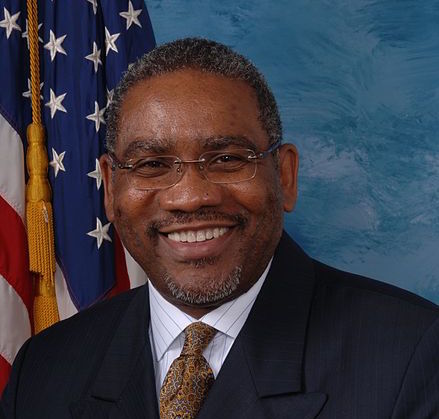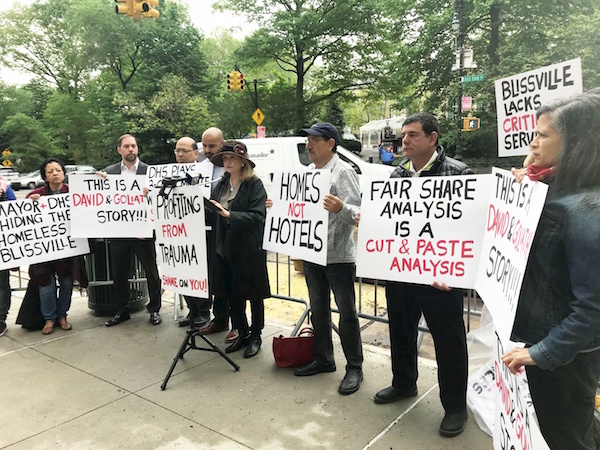Gillibrand Introduces Banking Deregulation Bill Amendment

U.S. Sen. Kirsten Gillibrand (D-NY) yesterday introduced an amendment to the banking deregulation bill to close a tax loophole that forces taxpayers to subsidize massive CEO compensation.
Gillibrand’s amendment would put taxpayers first by closing the tax loophole that allows corporations to deduct part of the amount they spend on executive compensation. Gillibrand’s amendment would also give shareholders more oversight in determining whether CEOs should receive substantial raises or bonuses.
Under the current law, corporations can get a tax deduction for excessive CEO pay and pay their CEOs massive amounts of money with little input from shareholders.
“From corporate tax cuts to banking deregulation, Congress is making sure the biggest banks are winning and their CEOs are getting big paydays, but not doing nearly enough to help working families in New York and across the country,” said Gillibrand. “In order to make the system fairer for taxpayers, we should start by making sure they aren’t subsidizing the excessive compensation these CEOs are receiving – in some cases more than 300 times higher than their employees. This is unacceptable, which is why I urge all of my colleagues to support my amendment. We need to start rewarding work again in this country, and ending taxpayer subsidies of excessive CEO pay is a good start.”
Specifically, Gillibrand’s amendment would do the following:
– Close the executive compensation loophole by eliminating a company’s tax deduction on executive compensation that is “excessive,” defined in this legislation as more than 25 times the median income of their employees or more than $1 million, whichever is less;
– Require that a public company may only pay “excessive” amounts if a majority of shareholders vote to approve the compensation within 18 months of the compensation being paid; and
– Require that if a company does not receive the majority vote, the Securities and Exchange Commission can issue a non-tax-deductible fine for the amount of excessive compensation.
Meeks Introduces Hardest Hit Housing Act of 2018

U.S. Rep Gregory W. Meeks (D-Jamaica, Laurelton, Rosedale, Cambria Heights, Saint Albans, Springfield Gardens, Far Rockaway, JFK Airport) along with U.S. Reps. Yvette D. Clarke (D-Brooklyn) and José E. Serrano (D-Bronx) yesterday introduced legislation to provide public housing, foreclosure mitigation, and rental assistance grants through the United States Housing and Urban Development agency (HUD) with supplemental funding for state public housing authorities to ensure Americans have access to affordable housing.
The Hardest Hit Housing Act of 2018 will:
- Allocate $4 billion a year in supplemental funding to the Public Housing Capital Fund Grant Program for public housing authorities that own or manage more than 10,000 units.
- Supply foreclosure mitigation and assistance grants with $5 million per year for five years to the 15 states with the highest foreclosure rates
- Authorize rental assistance grants to fund 100,000 incremental housing choice vouchers for housing authorities at a rate of 20,000 units per year over five years.
“Homeownership is the gateway to wealth creation and for many individuals, renting a home is their first step toward saving for ownership,” said Meeks. “Federal spending on housing programs should be treated as investments because they provide opportunities for wealth creation especially in low and moderate income areas. Our bill is an investment in the future of those aspiring toward the American Dream.”
The measure comes as President Trump earlier this year unveiled a budget proposal that guts federal programs that provide housing stability for low-income families. Trump’s proposal also cuts the Public Housing Capital Fund, a $2 billion annual fund that is used to renovate or maintain public housing units.
Also signing on to the bill as an original co-sponsor was U.S. Rep. Joe Crowley (D-Sunnyside, Astoria, College Point, East Elmhurst, Jackson Heights, Corona, Woodside, the Bronx).
Kim Bill Pushes For High-Speed Rail

Assemblyman Ron Kim (D-Whitestone, Flushing, Murray Hill) yesterday introduced a bill establishing a 12-person exploratory commission to study and develop hyperloop and high-speed rail within New York State.
Kim sees high-speed rail, not casinos and corporate giveways, as a way to revive the upstate economy. “We need to rethink our overall economic development vision for the entire state, and that starts with some version of high-speed rail,” Kim told Politico.
In addition to exploring the technology that sends bullet trains speeding across other parts of the world at more than 150 miles an hour, the commission would also study the so-called hyperloop concept.
Hyperloop is the still-unproven technology championed by futurists like Elon Musk that would, they say, move passengers, or cargo, at up to 760 miles per hour in pneumatic-like tubes.
“Our country and our state are grappling with an aging and outdated public infrastructure system. At a time when other countries around the world are developing modernized and increasingly sophisticated transportation systems, our railways, bridges, subways, and roads are falling into disrepair,” said Kim.
“I am sponsoring a bill to create a state commission on rapid transit, which would explore the potential for the development of both high-speed rail and a Hyperloop. The former is already a reality in countries where railway lines routinely reach speeds of 150-200 MPH, and being late more than a minute is so serious and rare an occurrence that they apologize to riders. The latter is an innovative concept being explored and developed by ambitious entrepreneurs, and a prime example of potential public-private partnerships we should be capitalizing on.
“As New Yorkers and as Americans, we need to take real steps to address our infrastructure crisis and regain our place as world leaders on the new technological frontier.”








